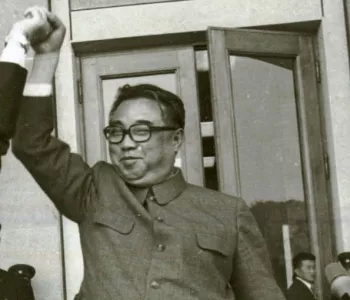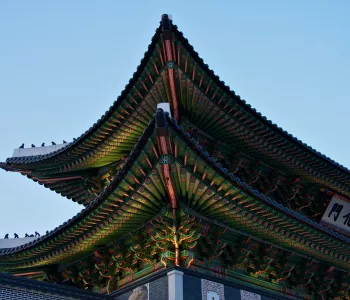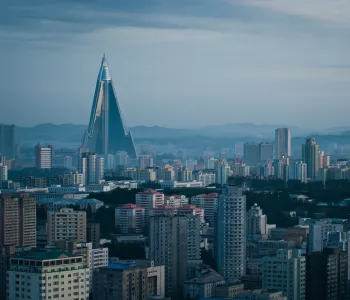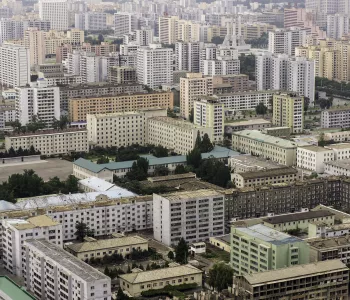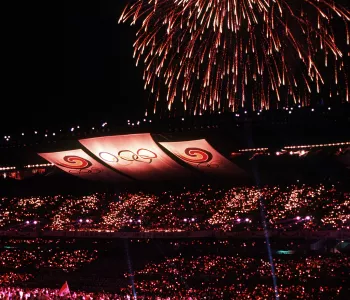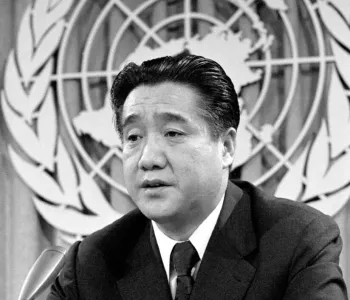d'Vinci

Chun, Doo-hwan
Chun Doo-hwan was a Republic of Korea general and president from 1980 to 1987.

CHUN DOO-HWAN (1931– ). Republic of Korea (ROK) general and president from 1980 to 1987. Chun was born in South Gyeongsang Province and educated at the ROK Military Academy. Following Park Chung Hee’s coup in 1961, he served on the Supreme Council for National Reconstruction until1963 and then held a succession of security-related posts. In 1970–71, he served with the ROK forces in Vietnam. In March 1979, he was made head of the Defense Security Command, the chief military intelligence organization, which was particularly concerned with the loyalty of the ROK armed forces. Following Park’s assassination in October 1979, Chun and his col-leagues staged a coup in December 1979. The following year, he became acting president, and in 1981, under a new Constitution, president.
Although strongly anticommunist, Chun did make overtures to the Democratic People’s Republic of Korea (DPRK), but these were rejected. DPRK propaganda consistently attacked Chun as a usurper and blamed him for incidents such as the 1980 Kwangju massacre. He was the presumed target of the 1983Rangoon bombing, carried out by DPRK agents. Despite this attack, Chun accepted a 1984 offer of materials for flood relief from the DPRK. This rare imaginative gesture came to nothing. Chun stepped down in 1987 and was succeeded by his former military classmate, Roh Tae-woo. Allegations of corruption surrounded Chun and his family, and after admitting the truth of some of the claims on television in 1991, he and his wife retreated to a Buddhist monastery.
After Roh’s term of office ended in 1993, demands surfaced for the investigation of the affairs of the two former presidents. President Kim Young-sam resisted these for a time, but eventually both were arrested in 1995 on bribery and corruption charges. Later charges of treason and mutiny were added to the indictment. In 1996 both were convicted. Chun was fined and sentenced to death, though this was later commuted to life imprisonment. Both were released in 1997 after the election of Kim Dae-jung. The fines were never paid. Chun occasionally made public appearances thereafter but commanded little respect.
All rights reserved. No portion of this publication may be reproduced, stored in a retrieval system, or transmitted in any form by any means, electronic, mechanical, photocopying, recording or otherwise without the prior written permission of the publisher. (Historical Dictionary of the Democratic People's Republic of Korea, by James E. Hoare, published by RLPG Books, appears by permission of the author and publisher).
Although strongly anticommunist, Chun did make overtures to the Democratic People’s Republic of Korea (DPRK), but these were rejected. DPRK propaganda consistently attacked Chun as a usurper and blamed him for incidents such as the 1980 Kwangju massacre. He was the presumed target of the 1983Rangoon bombing, carried out by DPRK agents. Despite this attack, Chun accepted a 1984 offer of materials for flood relief from the DPRK. This rare imaginative gesture came to nothing. Chun stepped down in 1987 and was succeeded by his former military classmate, Roh Tae-woo. Allegations of corruption surrounded Chun and his family, and after admitting the truth of some of the claims on television in 1991, he and his wife retreated to a Buddhist monastery.
After Roh’s term of office ended in 1993, demands surfaced for the investigation of the affairs of the two former presidents. President Kim Young-sam resisted these for a time, but eventually both were arrested in 1995 on bribery and corruption charges. Later charges of treason and mutiny were added to the indictment. In 1996 both were convicted. Chun was fined and sentenced to death, though this was later commuted to life imprisonment. Both were released in 1997 after the election of Kim Dae-jung. The fines were never paid. Chun occasionally made public appearances thereafter but commanded little respect.
All rights reserved. No portion of this publication may be reproduced, stored in a retrieval system, or transmitted in any form by any means, electronic, mechanical, photocopying, recording or otherwise without the prior written permission of the publisher. (Historical Dictionary of the Democratic People's Republic of Korea, by James E. Hoare, published by RLPG Books, appears by permission of the author and publisher).

